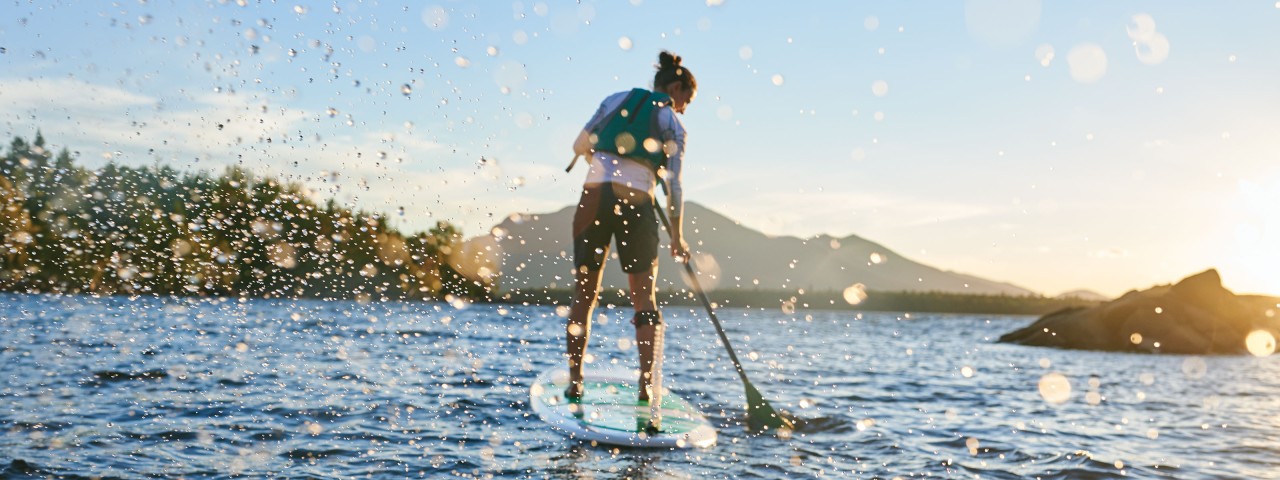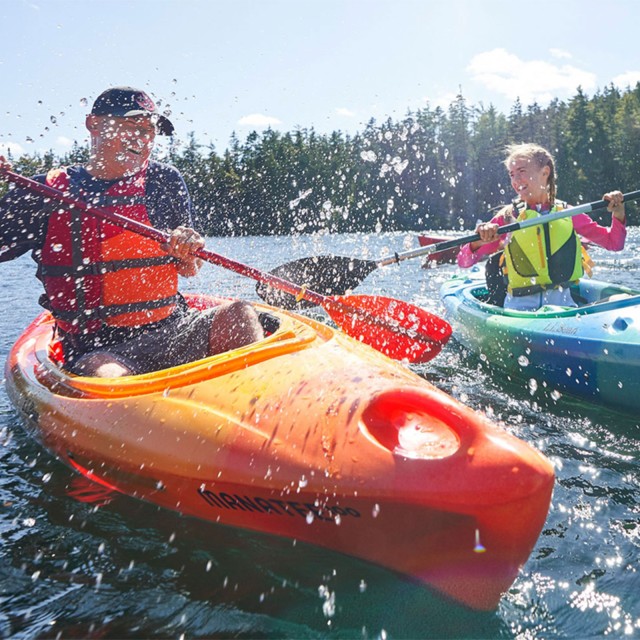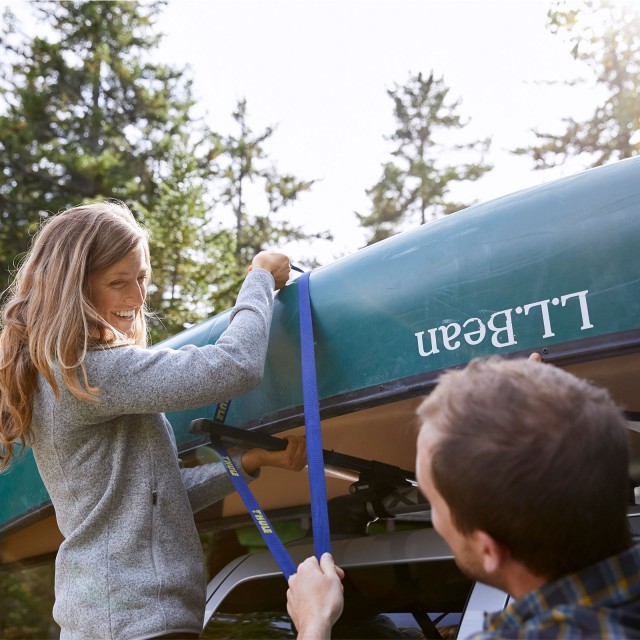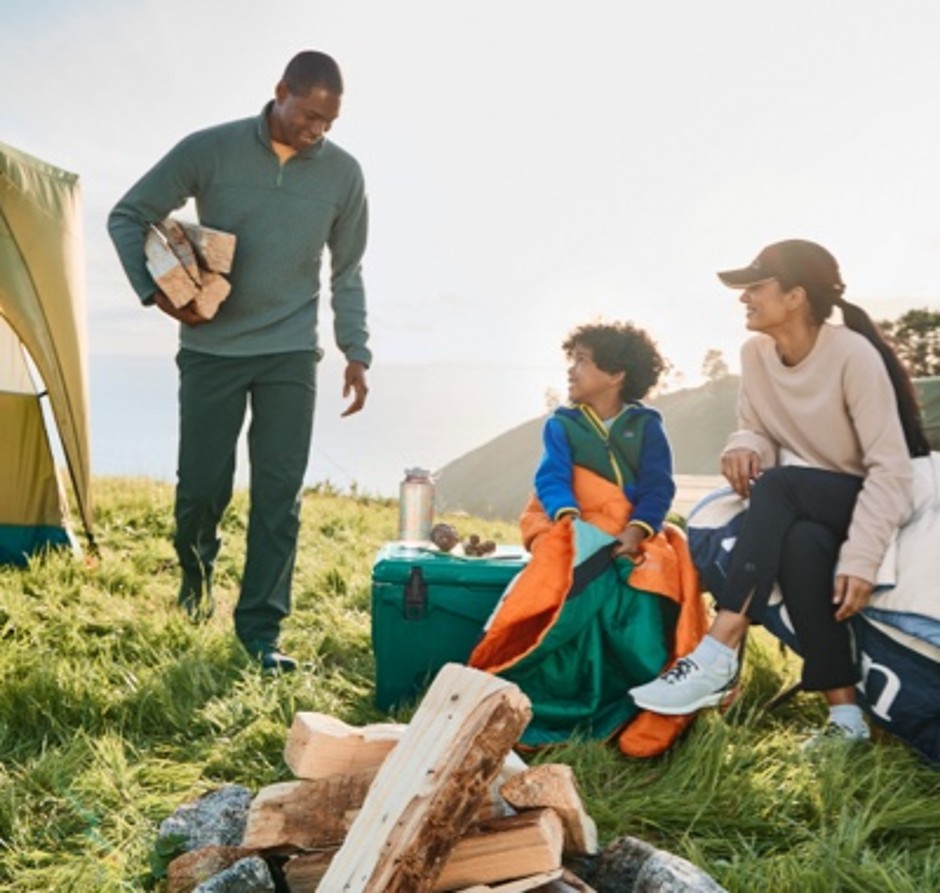
1. What kind of watercraft do you want to paddle?
Kayak
There are four categories of kayak: recreational, light touring, touring and fishing. A beginning paddler should start with a recreational boat on calm, small waters like ponds or slow moving rivers. When your skills develop or you get interested in longer trips—even overnight excursions—you can graduate up to a light touring or touring model. For the angler, there are stable, fully equipped fishing kayaks designed to help you catch fish.
Stand-Up Paddleboard
Commonly known as SUPs, these resemble a surfboard but are designed to be paddled like a canoe or kayak while standing. There are two kinds of SUP: planing and touring. Planing boards look most like a surfboard and can be used for fitness paddling, SUP yoga and surfing. Touring boards feature a streamlined displacement hull with a kayak-like bow that slices through the water efficiently. Touring SUPs can be used for long distances, overnight camping trips and racing. Within each style there are inflatable boards that pack down when deflated for easier travel and storage. SUPs are generally the lightest type of craft we offer and are easier to carry and transport.
Canoe
Simple, classic and timeless, canoes are the most stable (and heaviest) watercraft. They’re a great choice if you like to carry a lot of gear, passengers or even a dog when you paddle. They’re best on lakes, ponds and slow-moving rivers. Some are designed for fast-moving whitewater rivers but that is something you can tackle when you’re an advanced paddler.
2. Tips and essentials to help you stay safe
Take a Class
Taking a class before buying is a great way to learn some key paddling skills and to try out a boat. Our Outdoor Discovery Programs offer beginner courses for kayaks and SUPs.
PDF or Life Jacket
Most states, if not all, require a PFD for every person in a watercraft. While it’s important you have the PFD on board, it won’t do much good unless you’re actually wearing it. It is probably your most important piece of equipment. If you accidentally fall in, you’re PFD will keep you afloat, even if you’re unconscious.
Water/Water Bottles
Staying hydrated is important for any outdoor adventure. We recommend having at least two liters available on any paddling trip.
Weather
It’s crucial to check the weather before you head out paddling. Is it too windy? Are there thunderstorms in the area? Are there any other weather threats? A good weather radio will help you stay up to date.
Maps
A good waterproof map of the area is important to keep you on the right track. We also recommend having a compass and the knowledge of how to use it.


3. Stay warm, dry and comfortable with the right layers
The first rule for paddling is to dress for the water temperature, not the air temperature. If you take an accidental plunge, you want to be ready to stay warm. A wetsuit or drysuit is necessary if water temperatures are below 60° F. Above 60°, wear synthetic layers that also protect you from the sun. Finally, a good hat and pair of polarized sunglasses round out your paddling outfit.
4. Get Your Boat to the Water Comfortably and Safely
Watersport Car Racks
You’ll need a quality car rack in order to safely transport your kayak, SUP or canoe. They make it easy to secure your boat to your car so you can have a worry-free drive to the water.
Boat Carts
Sometimes there is a bit of a distance between your car and the water. That’s when a boat cart comes in very handy. It’ll help you comfortably roll your boat down a trail or path to the put-in spot.
5. Gear to help you maximize your fun and comfort
Dry Bags
This valuable tool will keep electronics, clothing, food and other necessary gear dry. They are an essential if you plan on going out for longer than an hour.
Coolers
This valuable tool will keep electronics, clothing, food and other necessary gear dry. They are an essential if you plan on going out for longer than an hour.



